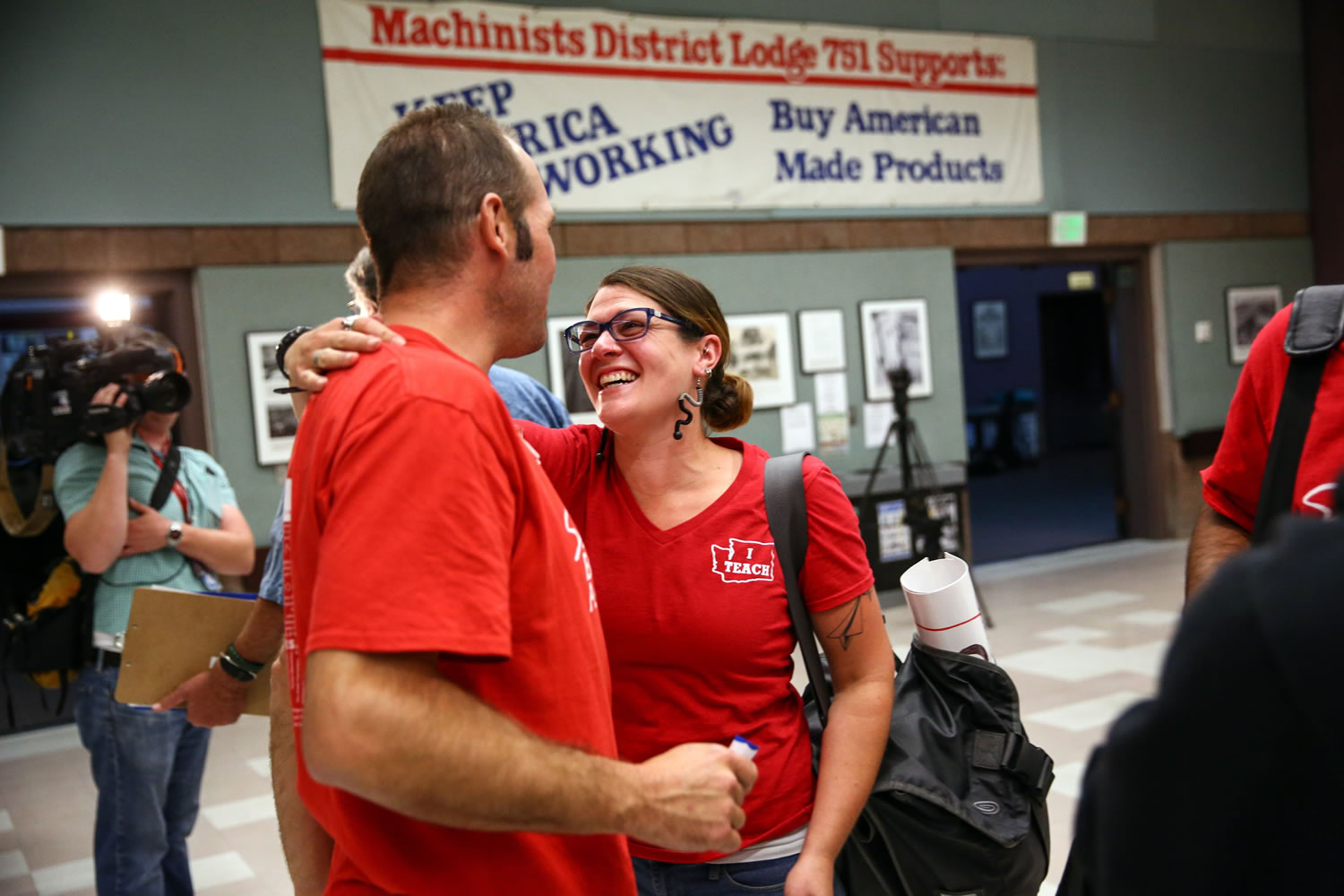SEATTLE — Striking Seattle teachers who reached a tentative contract deal tapped into the concerns of the community to win unusual concessions: guaranteed 30-minute recess for elementary students and teams created to address race and equity in schools.
The dispute that delayed the school year for 53,000 Seattle students by a week reflects a strategy shift by teachers nationwide to take on broader issues that promote the public interest, experts say.
“Teachers are positioning themselves to be about much more than raising their own pay,” said Bob Bruno, a professor of labor and employment at the University of Illinois who closely follows teacher issues.
They are “moving the bargaining away from the worker-centered economic interest to the broader defense of education. It’s not just the contractual dispute that we have. We want to use the collective bargaining process to improve and protect public education.”
However, pay was a big sticking point as teachers who have gone six years without a state cost-of-living raise complained about expenses skyrocketing while the city’s highly paid technology sector booms.
Teachers argued for better pay, fair teacher evaluations and reduced workloads, but they also tapped into community protests over too much testing, not enough recess and concerns about racial disparity in discipline and student performance. Many had complained that some schools only had 15 minutes of recess, and that low-income schools were the most affected.
“By focusing on issues like recess, race equity and too much testing, they really highlighted the fact that their contract bargaining is about quality education for all kids,” said Wayne Au, associate professor of education at University of Washington Bothell.
Jonathan Knapp, president of the Seattle Education Association, which represents 5,000 teachers, specialists and support staff, said the union took a new approach to bargaining, working closely with parents, communities of color and other unions.
“Educators are deciding that they need to really stand up and be the advocates for public education,” he said.
Students will start school today, after union leadership voted to suspend the strike that began Sept. 9. The full union membership will vote on the tentative contract Sunday.
“We are grateful to both bargaining teams for working literally through the night to resolve differences,” district superintendent Larry Nyland wrote in an email to families Wednesday. “It was just an incredible effort by both bargaining teams, who all care deeply about students.”
Chicago, St. Paul
The strategy in Seattle echoes what teachers in Chicago and St. Paul, Minn., have done in their contract negotiations in recent years: work with parents and community members to bring issues to the negotiating table.
Chicago teachers, who went on strike in 2012, pushed for more recruitment of teachers of color so students would have proper role models, Bruno said.
St. Paul teachers got community input and worked those issues, including equitable access to specialists and others, into contract talks when they reached an agreement last year, said Mary Cathryn Ricker, executive vice president of the American Federation of Teachers, who led the St. Paul union at the time.
“This is a trend that really is going to continue to blossom across the country,” she said.
Seattle took cues from the Chicago talks to get the community involved in education, Au said. “The fact that race equity and testing are in the contract are the direct results of the organizing of parents and teachers together,” he said.
The strike had broad support among parents, who organized meals, walked the picket line and held a march Tuesday that brought several hundred people out to back teachers. The Seattle City Council also supported the union, passing a resolution this week to recognize the striking teachers.
Parent Heather Dachary said the issue of recess and the extended school day were important to her. “If you’re stretching teachers too thin without compensating them, then the kids are the ones who are going to suffer along with the teachers,” she said.



